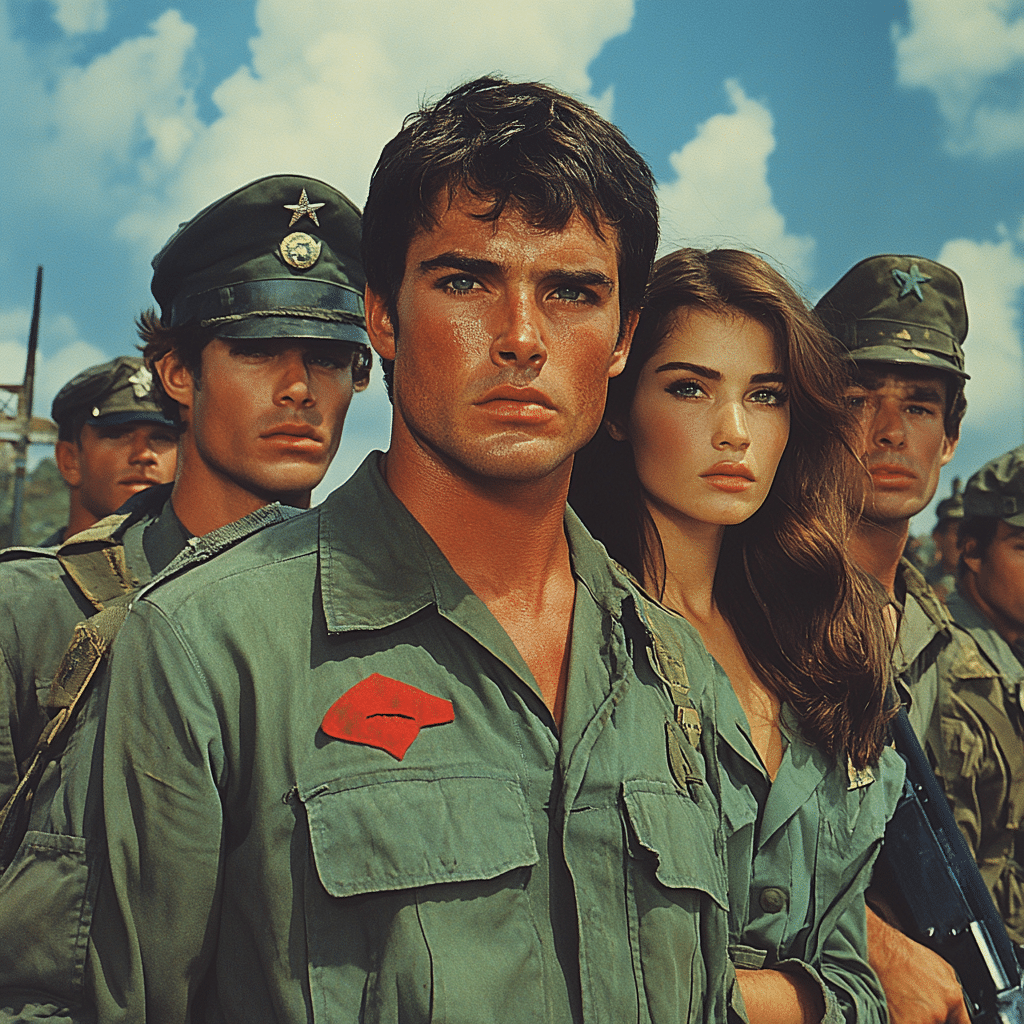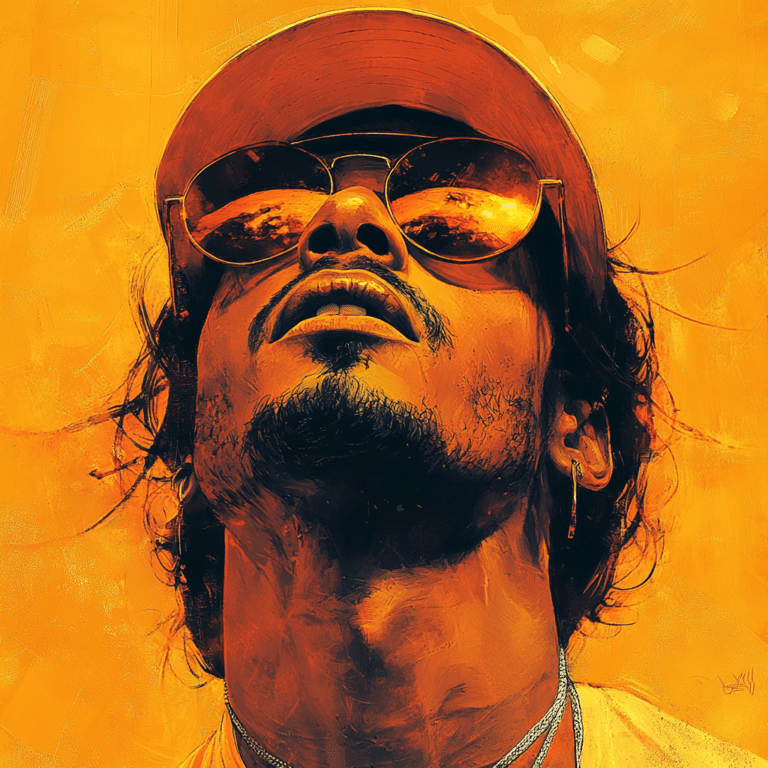The Enduring Impact of the MAS*H TV Series
The MASH TV show is nothing short of an American cultural staple—a series that blended humor with the harsh realities of war, leaving an indelible mark on television history. Airing from 1972 to 1983, this iconic adaptation of the film of the same name provided an insightful, often heartbreaking exploration of the human experience during the Korean War. Not just a comedy, the MASH TV series** served as a profound commentary on life, death, camaraderie, and the chaos that surrounds military service. Its characters were more than just fictional creations; they were archetypes reflecting the struggles and triumphs shared by many.
As we evaluate the legacy of the MAS*H TV show, it’s essential to understand that its storytelling was revolutionary for its time. In an era when many shows shied away from tough topics, MAS*H tackled them head-on. The juxtaposition of humor with the sobering realities of war not only provided laughter but also encouraged viewers to engage deeply with the struggles portrayed. The series offered a lens through which we could confront the chaos of life, digging into the raw emotions that accompany grief, love, and friendship amidst tragedy.
In today’s turbulent age, the lessons taught by MASH remain incredibly relevant. As our society grapples with increasingly partisan divides, the themes of compassion, understanding, and shared humanity that the MASH TV series so eloquently built upon resonate just as forcefully. While we contend with the so-called “Woke” movement and the polarized discussions that often ensue, MAS*H reminds us of the universal bonds that inherently tie us together, despite our differences. This series is not just classic television; it stands as a clarion call to reevaluate our current narratives and ensure that we recognize the humanity in one another.
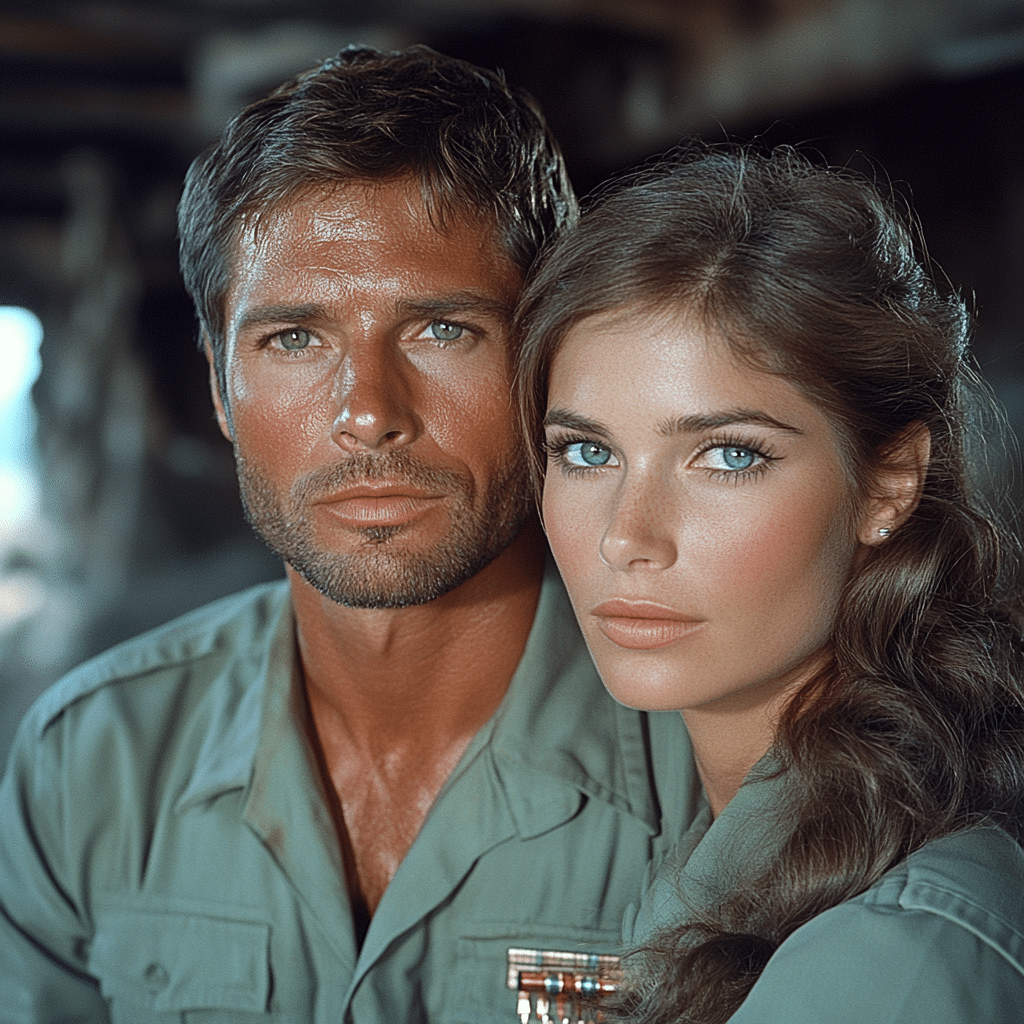
Top 5 Heartbreaking Moments in MAS*H History
1. The Death of Colonel Henry Blake
One of the most jarring moments in MASH* history is undoubtedly the death of Colonel Henry Blake, played by McLean Stevenson. The season three finale, titled “Abyssinia, Henry,” shocked viewers when it aired in 1975. It’s a scene that not only struck at the heart of the show’s narrative but also left an enduring impression on audience members. Blake’s unexpected departure exemplified the randomness of life and loss during wartime, resonating deeply with fans and reminding us that tragedy can arrive when least expected.
2. The Plight of Captain Painless Pole
The episode “The Girl Who Came in with the Golden Eyes” introduced audiences to the deeply troubled Captain Painless Pole, portrayed by Larry Linville. Grappling with depression, Captain Pole’s story serves as a painful reminder of the mental health struggles that many veterans face after their service. The nearly tragic conclusion of his arc was heart-wrenching, showcasing why MAS*H wasn’t afraid to highlight issues like mental health, which many shunned in the entertainment landscape of the time.
3. The Dedication of “Goodbye, Farewell, and Amen”
The final episode, “Goodbye, Farewell, and Amen,” stands as a testament to the series’ legacy. Viewers were treated to a conclusion that tied together decades’ worth of stories in a way that felt both heartbreaking and satisfying. The blend of reminiscences about friends lost and cherished moments shared brought tears to many eyes. This masterful departure not only encapsulated the series’ themes of friendship and loss but echoed the undeniable impact of war on those who serve.
4. Klinger’s Struggles with Identity
Maxwell Klinger, played by Jamie Farr, provided plenty of laughs with his attempts to get a Section 8 discharge through outrageous antics, including cross-dressing. However, beneath this comedic exterior lay a deeper struggle with identity and societal expectations. Klinger’s story resonates today, highlighting ongoing conversations about masculinity and individuality in a world that often attempts to box us into predefined categories. In exploring this topic, MASH* invited viewers to reflect on their identities and the societal pressures that influence personal expression.
5. The Loss of Friends and Family
Episodes like “The Most Unforgettable Characters” featured poignant storytelling showcasing how war takes its toll on relationships. Characters reminiscing about the loved ones they lost or left behind tugged at hearts, reminding viewers of the collateral damage war inflicts on families. This interplay of laughter and sorrow is what made the MAS*H TV show exceptional; it masterfully illustrated the spectrum of human emotion in a turbulent world, revealing the power of memory in healing.
MAS*H Movie Cast: The Transition to Television
Before the television series graced our screens with its unforgettable characters, the MAS*H movie cast, featuring actors like Donald Sutherland and Elliott Gould, laid a solid foundation. Robert Altman’s 1970 film established the comedic and tragic blueprint for the series to follow. However, the transition to television allowed for character deepening and narrative expansion, leading audiences to connect deeply with newly added faces like Alan Alda’s iconic portrayal of Hawkeye Pierce.
The initial characters from the movie were perfect for adaptation, yet the television series was able to delve deeper into their psychological landscapes. Each storyline added layers to the characters, making them relatable and, frankly, unforgettable. As Alan Alda became Hawkeye, he crowned an ensemble cast that thrived on the complexities of war life. His ability to convey both sincerity and humor made him a beloved central character that encapsulated the spirit of MASH*.
Moreover, the shift from film to television marked an evolution in storytelling, showcasing how the MAS*H TV series transformed characters into symbols reflective of the societal struggles and victories of the time. This transformation did not just impact the characters; it set the tone for future ensemble casts, demonstrating that humor could serve as a vehicle for deeper discussions.
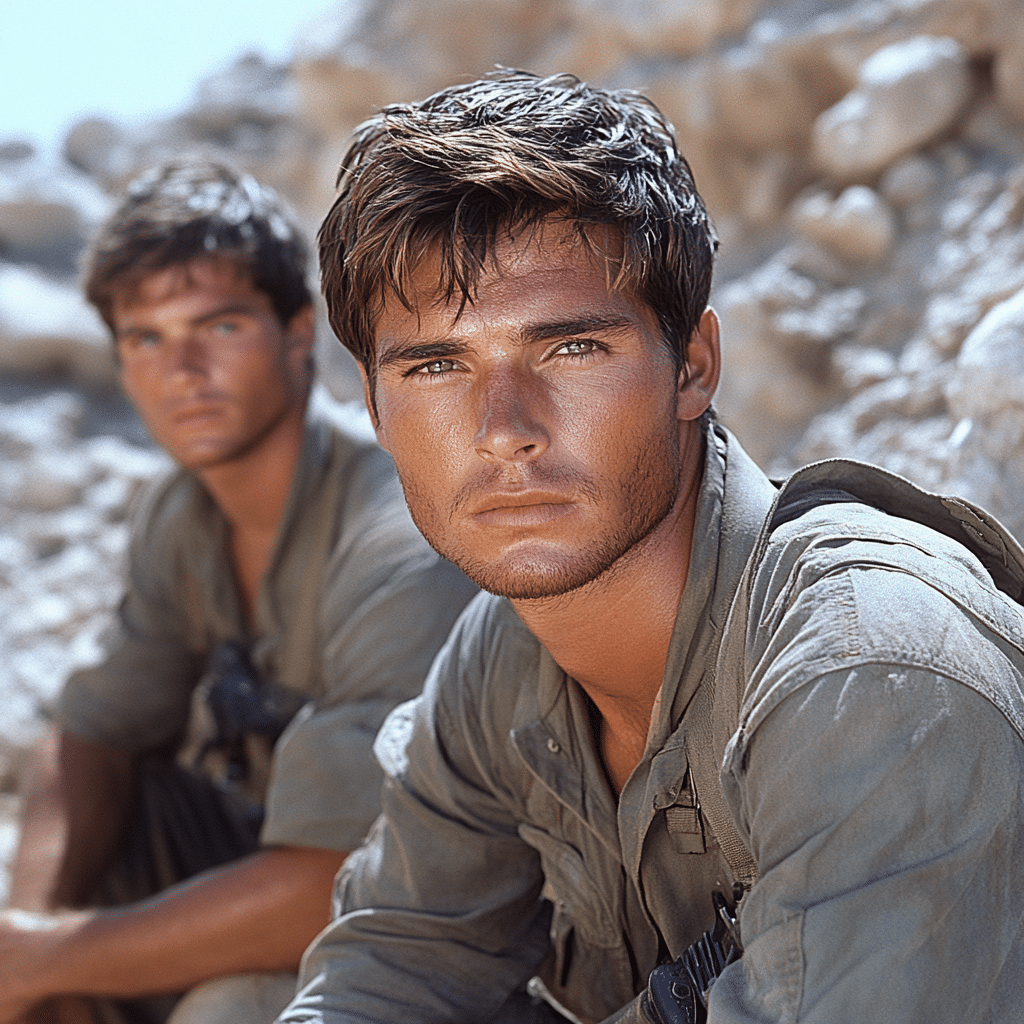
The Lasting Legacy of MAS*H
MAS*H has cemented its place in television not simply as a sitcom but as a significant commentary on the intersections of war, humanity, and friendship. By engaging hard-hitting themes wrapped in comedy, the series has left behind a legacy that influences countless shows even decades later. In an age where storytelling can sometimes feel hollow, the ability to address weighty topics like loss, grief, and camaraderie brings a sense of authenticity that resonates with audiences.
For contemporary viewers, revisiting the MAS*H TV show can offer much-needed reflections on issues that remain pressing today. The timeless themes presented in MASH* provide an invitation to engage with more than just surface-level narratives. As we contend with the aftermath of recent conflicts, the series’ lessons challenge us to prioritize compassion, understanding, and dialogue over partisan bickering.
In these strife-filled times, where division often seems to reign, MASH serves as a reminder of the necessity to recognize our shared humanity. Its enduring influence sparks vital conversations on everything from military service to mental health and gender issues. As fans keep discovering or rediscovering the series, they engage with a piece of history that continues to highlight the human experience—a show that, through laughter and tears, crystallizes the importance of empathy and connection. That’s the undeniable spirit of the MASH TV show and its remarkable legacy.
MAS*H TV Show: Trivia That Hits Home
The Legacy of MAS*H TV Show
The MASH TV show, known for its mix of humor and heart, aired over a decade, captivating audiences during a tumultuous historical era. Its final episode, “Goodbye, Farewell and Amen,” remains one of the most-watched TV events, drawing in almost 106 million viewers—a record that stood for decades. Interestingly, this period mirrors the significant cultural landmarks of the time, including the tragic JFK assassination date*, which profoundly influenced American sentiment and storytelling on television.
While viewers laughed and cried with characters like Hawkeye and BJ, some might ask about what’s happening in pop culture today. For instance, Taylor Swift’s international tour has brought fans together in ways that echo the camaraderie found within the MAS*H crew. Just like the show’s ensemble cast, Taylor’s concerts create lasting memories and unbreakable bonds among her audience, reminding us of the shared experiences that unite us across generations.
Behind the Scenes and Fun Facts
Though the laughter and tears resonate, the behind-the-scenes magic is equally intriguing. Did you know that Alan Alda, who played Hawkeye, not only acted but also directed several episodes? His dedication mirrors that of others in the entertainment industry—like actress Piper Perabo, known for her incredible range in movies and TV shows. The MAS*H TV show’s influence, much like Perabo’s diverse roles, showcases how storytelling can evolve while still touching the essence of human emotion.
Some episodes also tackled themes that seemed ahead of their time. For instance, the show’s poignant takes on war and peace raised questions still relevant today, much like discussions around current global leaders, such as the President of El Salvador and his approach to governance. Supporting characters often brought comic relief but were instrumental in addressing serious issues, proving that, like a keto diet, a balanced approach can yield long-term benefits—even in the chaos of a battlefield.
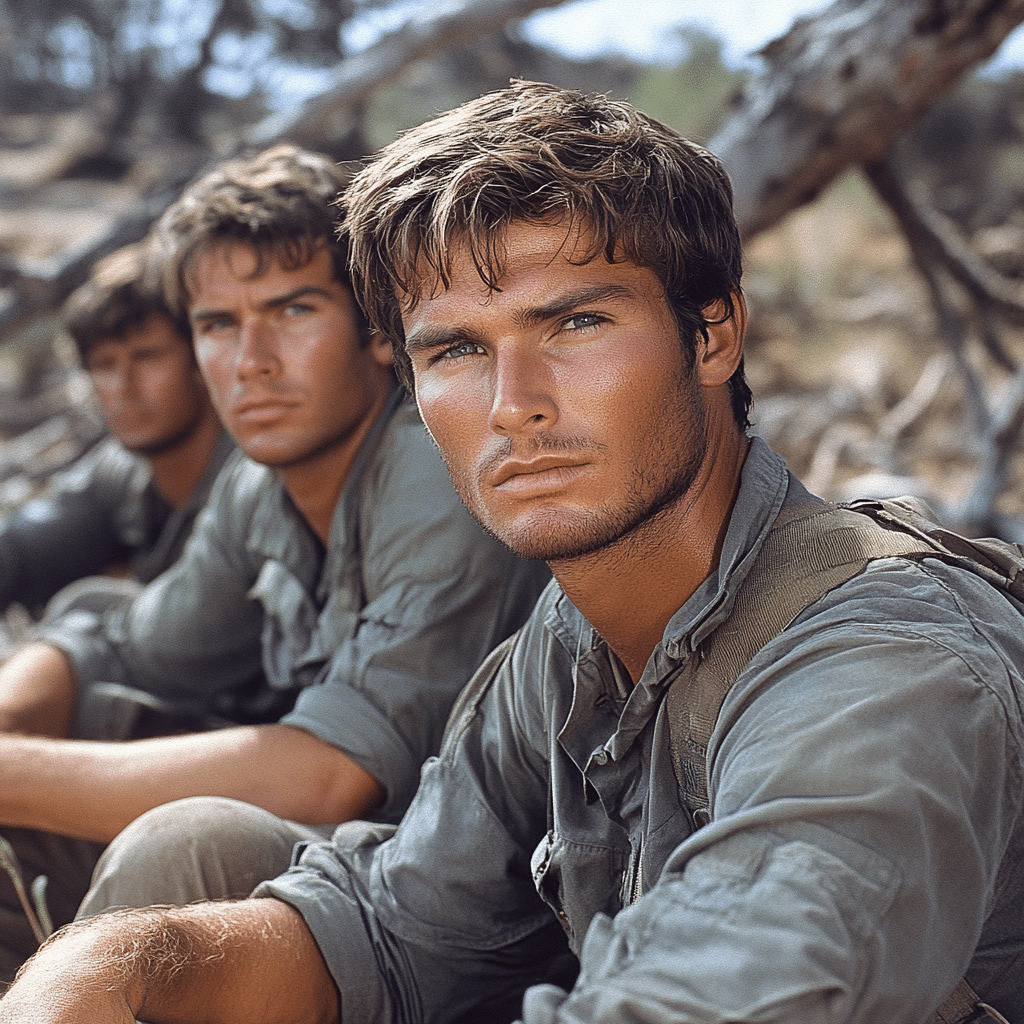
What caused MASH to end?
M*A*S*H ended after its 11th season mainly due to declining viewership and creative differences within the cast and crew. Alan Alda wanted to wrap things up with season 10, but CBS pushed for a brief 11th season and a farewell movie.
What does 4077 mean in MASH?
In M*A*S*H, the “4077” refers to the fictitious Mobile Army Surgical Hospital where the show’s characters serve during the Korean War. It’s based loosely on the real-life 8055th MASH unit.
Who was the only actor to appear in every episode of MASH?
Alan Alda is the only actor who appeared in every episode of M*A*S*H, serving as the show’s longtime lead and connecting point throughout its run.
What was the most controversial episode of MASH?
“Abyssinia, Henry” is often considered the most controversial episode of M*A*S*H, as it features the heartbreaking death of Lt. Colonel Henry Blake, sparking a strong emotional reaction and backlash from many fans.
Why did radar leave MASH in real life?
In real life, Gary Burghoff, who played Radar, left M*A*S*H due to a desire to have a more private life and because he felt the character’s story was complete after several seasons.
Why was Major Burns written off MASH?
Major Burns was written off M*A*S*H as part of a creative shift, as the writers wanted to bring in new characters and change the show’s dynamic, leading to his eventual replacement in the series.
What happened to Hawkeye after MASH?
After M*A*S*H, Hawkeye, played by Alan Alda, became a father and found peace in his post-war life, although the series left much of that story to the audience’s imagination.
What does M*A*S*H stand for?
M*A*S*H stands for “Mobile Army Surgical Hospital,” which accurately reflects the show’s setting and the work of military medical teams during wartime.
How accurate was MASH?
While M*A*S*H aimed for accuracy in its depiction of wartime medicine and the experiences of soldiers, some storylines and character portrayals were dramatized for entertainment purposes.
Who is the oldest living cast member of MASH?
As of October 2023, the oldest living cast member of M*A*S*H is Gary Burghoff, who played Radar O’Reilly and is known for his talent beyond the iconic role.
Who was the secret agent on MASH?
The secret agent character in M*A*S*H was Maxwell Klinger, portrayed by Jamie Farr, who often dressed in women’s clothing to try and get a discharge from the army.
Did the cast of MASH like each other?
The cast of M*A*S*H generally liked each other and formed strong friendships, despite some occasional disagreements typical of a long-running show.
Why was Colonel Blake killed off?
Colonel Blake was killed off to make a bold narrative choice that underscored the harsh realities of war, impacting characters and viewers alike in a dramatic fashion.
What was the final line in MASH?
The final line in M*A*S*H was “Goodbye, Radar,” delivered by the character B.J. Hunnicutt, which left a lasting emotional impact on viewers.
What event dethroned the MASH series finale from being the most watched broadcast?
The event that dethroned M*A*S*H’s series finale as the most-watched broadcast was the Super Bowl, specifically Super Bowl XLIX in 2015, which drew an audience that surpassed M*A*S*H’s record.

